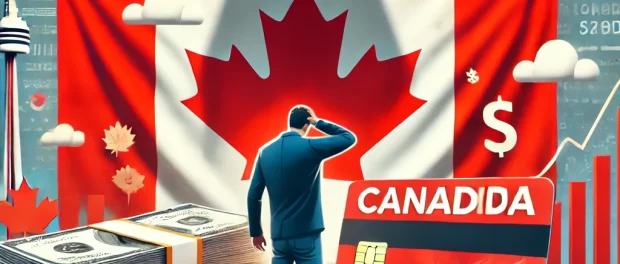Are There Any Canadian Government Programs or Grants to Pay Off Debt?

If you’re dealing with a high level of debt anywhere in Canada, you might be wondering if there are any government programs or grants that can help you pay it off once and for all. First, know that you are not alone. Statistics Canada recently released an article stating that Canadians have the highest debt to income raio in the G7.
While there aren’t specific grants designed to completely wipe out personal debt, there are several government-backed programs and resources that can help you potentially decrease your debt and also make managing your debt a lot easier. Here’s what you need to know:
1. Credit Counselling and Debt Management
If you’re struggling to keep up with payments, a Debt Management Plan (DMP) through a nonprofit credit counseling agency could be a good fit. With a DMP, a credit counselor basically works with your creditors on your behalf to reduce interest rates and consolidate your debts into one manageable monthly payment, with lower interest.
Nonprofit agencies like those found through Credit Counselling Canada can help you get started with this process. These agencies offer free or low-cost services to help you get back on track.
2. Tax Relief from the CRA
If you owe taxes and are facing financial hardship, the Canada Revenue Agency (CRA) offers a Taxpayer Relief Program. This program can reduce or eliminate penalties and interest if you can’t pay due to circumstances beyond your control, like illness or unemployment. It’s definitely worth applying to if you need some breathing room on your tax debt.
3. Provincial Assistance Programs
Depending on where you live, there might be additional help available from your provincial government. For example:
- Ontario offers the Low-Income Energy Assistance Program (LEAP) to help with utility bills if you’re behind on payments.
- British Columbia has Rent Banks that provide interest-free loans to renters who are at risk of eviction.
- Alberta: the province of Alberta may have some options for you as well.
Check with your local government to see what specific programs are available to you.
4. Employment Insurance (EI) and Social Assistance
If you’re out of work or can’t work due to illness, you might be eligible for Employment Insurance (EI) or other social assistance programs. These programs won’t pay off your debt, but they can provide temporary income support to help you cover essential expenses while you get back on your feet.
5. Student Loan Relief
Struggling with student loan payments? The government offers a Repayment Assistance Plan (RAP) that can reduce or even pause your payments based on your income. In some cases, your remaining loan balance could be forgiven after a certain period.
6. Indigenous Services
If you are First Nations, Inuit, or Métis, you may have access to additional financial assistance and debt management support through Indigenous Services Canada. These programs can offer targeted help based on your specific needs.
7. Help for Homeowners
If you’re worried about losing your home, the Canada Mortgage and Housing Corporation (CMHC) has resources that can help you manage your mortgage debt, including options for payment deferrals and loan modifications.
8. Legal Aid
If you’re facing legal trouble because of your debt, such as being sued by creditors, you might be eligible for free or low-cost legal help through your provincial legal aid services. You can find more information on the Department of Justice Canada website.
9. Bankruptcy and Consumer Proposals
If your debt feels overwhelming, you might want to consider filing for bankruptcy or a consumer proposal. These are legal processes overseen by the federal government through the Office of the Superintendent of Bankruptcy (OSB).
- Consumer Proposals allow you to negotiate a plan with your creditors to repay a portion of your debt over time, often with better terms than bankruptcy.
- Bankruptcy can help you eliminate most unsecured debts, though you might have to surrender some assets. And the impact on your credit score is the worst out of all options.
Both options can provide a fresh start, but it’s important to understand the impact on your credit and your financial future. We recommend that you speak to a nonprofit credit counseling agency before making any decision.
Conclusion
We are sorry to say that there is no Canadian government grant that can help you reduce or eliminate your debt, but the programs listed in this article should help you either reduce or better manage your debt. If you want to eliminate most of your debt, filing bankruptcy might be your best option. You can also consider selling some assets like real estate or cashing out some of your RRSP. That said, we always recommend contacting a credit/debt counseling agency first, to explore all of your options. These nonprofits (some can be for-profits) generally give free consultations so you can ask them to review your specific situation and offer the best recommendation.

Will Your Retirement Weather the Next Financial Crisis?
Gold has been used as an inflation hedge and a way to preserve wealth for millennia. We partnered with Silver Gold Bull, Canada's top-rated gold company (with over 280,000 five-star reviews), to offer Canadians a low-cost and tax-advantaged way to buy gold and silver through an RRSP/TFSA or another retirement plan.
Request More Info
Website: www.SilverGoldBull.ca
Speak to an Expert: (877) 707-4707
Copyright 2023 Gold RRSP - Helping Canadians invest in physical bullion for retirement
